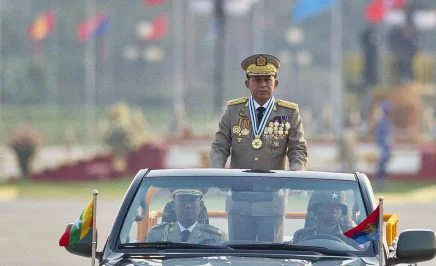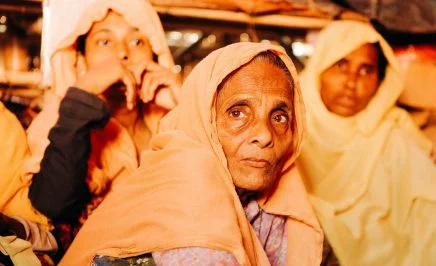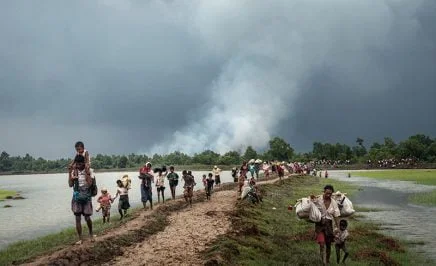Amnesty International Australia is calling on the Australian government as co-chair of the Ministerial Conference of the Bali Process to urgently implement a coordinated and regional response to save lives and respond to a worsening crisis for people seeking asylum and refuge, including Rohingya from Myanmar fleeing violence and persecution.
“Amnesty is among many organisations in the human rights, refugee advocacy and international development sectors alarmed by UNHCR reports that at least 348 people died or went missing attempting sea crossings in 2022,” said Graham Thom, Amnesty International Australia Refugee Advisor.
According to UNHCR, attempted sea crossings by Rohingya increased by 360 per cent to 3,500 in the past year, mainly from Myanmar and Bangladesh. Many people drowned, while children died from hunger and thirst.
It is now 20 years since the signing of the Bali Process Declaration. While it has retained a strong focus on combatting people smuggling and trafficking, the cooperation envisaged in its goals of focusing on implementing mechanisms to address safe disembarkation at sea and protection of victims has not materialised.
“The indifferent response to the current Rohingya crisis has been particularly shocking, especially when compared to 2015 and 2016 when there were at least two regional meetings to address the situation,” said Thom.
“There has been no attempt to convene regional governments this time around, and many of the boats that have disembarked have been helped by fishermen and local communities rather than maritime authorities.
“Amnesty and many other refugee rights advocates want to see stronger leadership from Australia in its role as co-chair of the Bali Process at the Ministerial Conference.
“In particular we want to see Australia encourage governments to coordinate continuous monitoring of search and rescue (SAR) areas, establish clear inter-governmental communication when boats carrying refugees and migrants are identified, and coordinate rescue and disembarkation.”
In line with Amnesty’s A Better Plan for Rohingya Refugees recommendations for humane solutions to address the escalation of movement in the region and safety of people seeking refuge, Amnesty has urged the Australian government to speed up its commitment to raise the humanitarian intake, ultimately to 30,000 places.
Amnesty also calls on Australia to provide a greater number of places for Rohingya refugees, including taking a leading role in resettling Rohingya refugees out of Bangladesh; end offshore processing and bring all refugees and asylum seekers transferred to PNG and Nauru to Australia; and boost Australia’s aid program to help neighbouring countries to better support refugees and provide humanitarian assistance where needed.
“In the absence of comprehensive regional solutions, refugees will continue to take dangerous boat journeys in search of safety, protection, family reunification and livelihoods,” said Thom.
“The Ministerial Conference of the Bali Process is an important opportunity for Asia-Pacific leaders to live up to their 2016 pledge to do more to prevent people dying on journeys in search of safety and commit to a comprehensive regional response to address this crisis.”
BACKGROUND:
Nearly one million Rohingya refugees are living in camps in Bangladesh after they fled their homes in Myanmar due to the military’s crimes against humanity. Rohingya people in Myanmar are still forced to live in a state of apartheid. Their freedom of movement and access to education, livelihood opportunities and healthcare are severely restricted.
Crimes under international law committed by the Myanmar military in Rakhine State in 2016 and 2017 as part of its brutal persecution of the Rohingya, included killings, rape, torture, burning hundreds of villages and forcing hundreds to thousands of Rohingya into Bangladesh, are now the subject of International Criminal Court (ICC) and International Court of Justice (ICJ) proceedings. A UN Fact-Finding Mission has called for senior military officials to be investigated and prosecuted for genocide.





